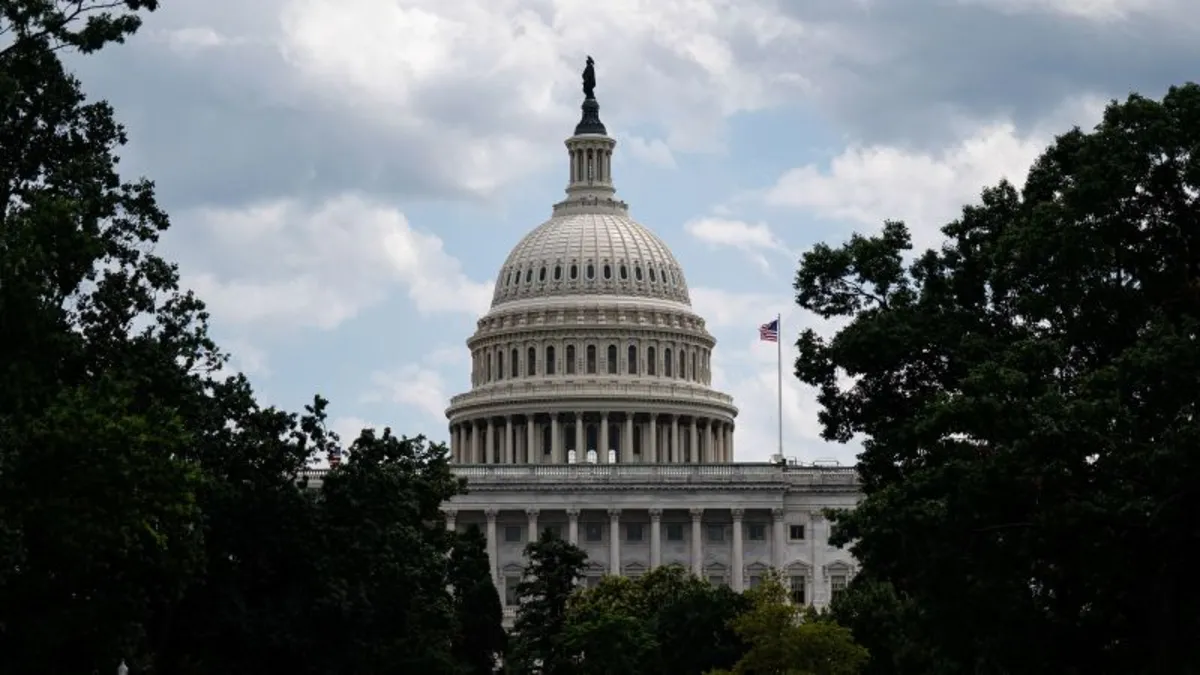
In a significant move early Friday morning, House Republicans granted final approval to a package of $9 billion in spending cuts aimed at foreign aid and public broadcasting. This decision represents a notable victory for President Donald Trump as it aligns with his initiatives under the Department of Government Efficiency (DOGE). The package was passed utilizing an obscure presidential budget law that allows Congress to circumvent the Senate filibuster, marking a historic achievement as Trump becomes the first president in nearly 30 years to successfully employ this strategy.
The approved package will now be sent to the president for his signature, solidifying its transition into law. Approximately $8 billion will be redirected from congressionally approved foreign aid programs. This is part of the administration's efforts to dismantle the U.S. Agency for International Development (USAID). Additionally, $1.1 billion is set to be cut from the Corporation for Public Broadcasting, which is responsible for funding key organizations like NPR and PBS.
The final vote concluded with a narrow margin of 216-213, with only two GOP representatives, Mike Turner and Brian Fitzpatrick, dissenting against the package. This spending cuts initiative is a pivotal priority for Trump and conservative lawmakers who have consistently criticized the increasing federal spending.
Prior to the package's final passage, the House faced challenges due to a divided membership. Some representatives insisted on a separate commitment from Republican leadership regarding enhanced transparency concerning the Jeffrey Epstein files. This issue has created a rift within the party, positioning Trump at odds with some of his staunchest supporters in the House GOP.
Speaker Mike Johnson and his leadership team engaged in extensive negotiations with the House Rules Committee on Thursday, ultimately deciding to advance both the DOGE cuts package and a non-binding resolution urging the release of additional Epstein files. However, there is no mandate compelling this resolution to be brought to the floor for a vote.
Following the passage of the DOGE cuts package, President Trump, Speaker Johnson, and congressional Republicans quickly celebrated the achievement. Trump expressed his enthusiasm on Truth Social, declaring, “THIS IS BIG!!!” Meanwhile, Speaker Johnson expressed his satisfaction, stating, “We’re going to downsize the scope of government. Government is too large. It does too many things, and it does almost nothing well.” He emphasized the need for a limited government that remains accountable and efficient.
Despite the triumph, Johnson refrained from committing to bring the Epstein resolution to the House floor, indicating that developments would dictate future actions. “We’re in line with the White House; there’s no daylight between us,” he noted.
The spending cuts package is $400 million less than an earlier version that included cuts to PEPFAR, a global AIDS combat initiative, which the Senate rejected. Nevertheless, conservative lawmakers supported the revised package, arguing it still included significant cuts in other areas of global health. Representative Eric Burlison of Missouri expressed disappointment over the larger context of federal debt, stating, “It’s better than nothing. So I think that at least we’re able to make some spending reductions.”
The passage of this bill raises critical questions regarding bipartisan cooperation between Democrats and Republicans to ensure government funding continues past the September 30 deadline. Democratic Senate Leader Chuck Schumer expressed skepticism about the ability to reach an agreement, citing concerns over Republican reliability in future negotiations. He remarked that he does not “have much faith” in the bipartisan intentions expressed by Senate Majority Leader John Thune.
In contrast, GOP appropriators maintain that the rescissions package should not hinder future funding discussions. House Appropriations Chairman Tom Cole asserted, “It’s up to them,” shifting the responsibility back to Democrats regarding the negotiation process.